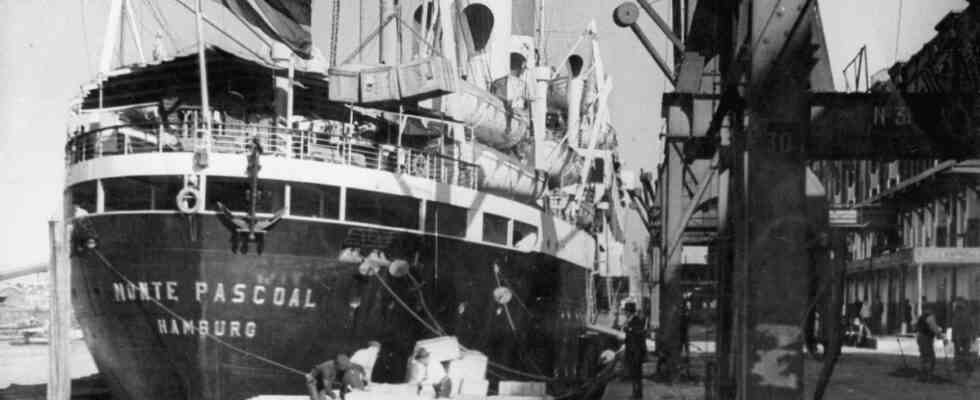The first impression of Buenos Aires? “Above all, trouble,” says Liesel Bein and laughs. Her family, who fled from the Nazis on a long ship trip to Argentina in 1939, immediately encountered problems at customs in the port. However, a few nicer images quickly stuck with the girl, the smell of jasmine for example, the ice cream vendors on the streets well into the night. In the decades that follow, there will be many more and different impressions: The Jewish family from Mönchengladbach will never return to Germany.
In 2014, Liesel Bein, born in 1926 and now deceased, told the Munich author and filmmaker Henriette Kaiser about her life story. She was one of several Jewish Germans living in Argentina whom Kaiser interviewed at the time. Supplemented by conversations from 2020, Kaiser has now published them as a book under the title “Goethe in Buenos Aires”. They are insights into a world of which one does not know much. Because, as Kaiser writes in the foreword, little is known that Argentina opened its borders to Jewish refugees much longer than, for example, the USA; depending on estimates, there were probably 45,000 German-speaking Jews who built a new life there.
Ironically, in cities like Buenos Aires, Nazis and Jews repeatedly clashed
What is more prominent in public perception is that after the war a number of Nazis such as Adolf Eichmann, head of the Reich Security Main Office responsible for the persecution and murder of millions of Jews, went into hiding in South American countries such as Argentina, Brazil and Chile. Ironically enough, in cities like Buenos Aires, Nazis and Jews repeatedly met, as Kaiser’s book also addresses – even if, for example, the children were taught separately in different schools.
From time to time, however, Jews and Nazis or their children met each other in Buenos Aires – and even fell in love, as the last story illustrates. In it, Renate Moszkowicz tells how, as the daughter of a Nazi in Buenos Aires, she met the Auschwitz survivor Imo Moszkowicz a few years after the war – incidentally, one of the children from their long, happy marriage is the Munich film producer Martin Moszkowicz.
One can well imagine Kaiser’s book as a film; originally it was probably planned as such. It would be nice to listen to the old ladies’ tones – most of the interviewees are women – and let your eyes wander with them over the city’s sea of houses. But it is commendable that at least this book is now available, the interviews of which Kaiser, evidently committed to interviewing eyewitnesses of an “oral history”, have hardly edited. The reading is loosened up by photos and interspersed texts on one’s own experiences and research in Buenos Aires, which deal with tango as well as cuckoo clocks. As the daughter of a music critic who was once very connected to the SZ, the author also discreetly brings in her own family history, which also has connections to Buenos Aires: A great-granduncle emigrated to Argentina at the end of the 19th century and founded a German-Argentinian trade newspaper.
The author Henriette Kaiser also discreetly brings in her own family history.
(Photo: Manuel Meyer)
It is much more important to Henriette Kaiser, however, to give her conversation partners a voice and to use their different and yet similar life stories to show how much every flight shapes a biography. Not only did the women sometimes have to change their names, from Marion to María, for example, so that they sounded more understandable in Spanish – and that alone gave part of their identity. They had to adjust to a life between cultures and renounce some things, for example professional dreams: Most of them had to work early due to lack of money, mostly as secretaries with foreign language skills.
In these conversations, however, it also becomes clear which qualities help to get through difficult times. Marion Weiss, for example, tells of her mother, who, unlike her father, was not broken when she fled: She had “that Austrian smile. No matter what happened, she smiled.” Today we would call that resilience, positive thinking. In addition, the women have a deep understanding for people who find themselves in similar circumstances. When they hear about refugees coming to Europe, their first impulse is: “Help. Of course help. Of course.”
Henriette Kaiser: Goethe in Buenos Aires, Faber & Faber 2022, 192 pages, 22 euros.

